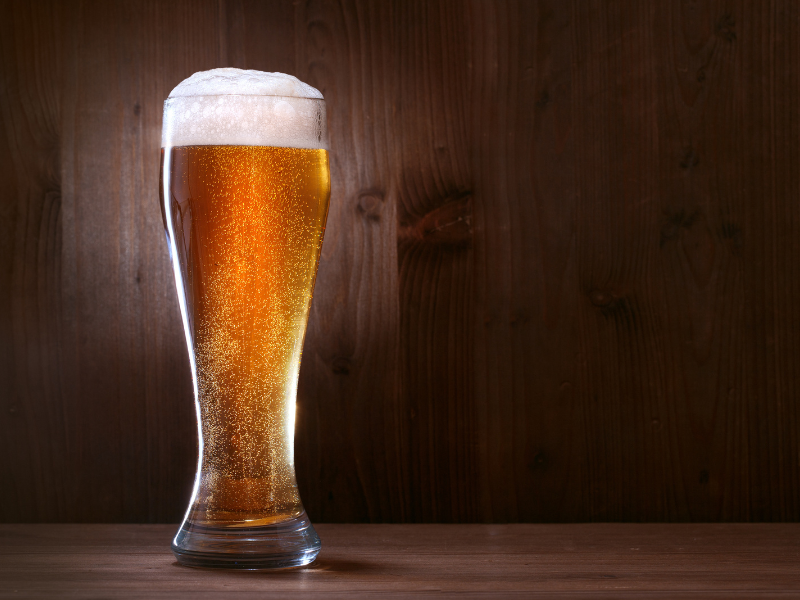One beer a day is enough to increase blood pressure, new study finds

Limiting yourself to one alcoholic drink a day may not be enough to avoid detrimental impacts to your health, according to a new study co-authored by a Tulane University researcher.
A study published in Hypertension, an American Heart Association journal, confirmed for the first time that both low and high daily alcohol intake are continuously associated with increases in blood pressure levels, potentially increasing the risk of cardiovascular disease.
The findings were the result of combined analysis of seven international research studies conducted between 1997 and 2021 in almost 20,000 adults in the U.S., Korea and Japan in whom the association between usual intake of alcohol and blood pressure could be observed for periods of 4 to 12 years. None of the participants had been previously diagnosed with high blood pressure, cardiovascular diseases or alcoholism.
Those who consumed an average of 12 grams of alcohol per day – roughly equivalent to 1.5 oz. of liquor or one 11 oz. beer – saw systolic blood pressure rise 1.25 mmHg. Consuming 48 grams of alcohol per day saw a systolic blood pressure increase of 4.9 mmHg. The finding for the association between alcohol consumption and higher blood pressure was robust, being seen for all levels of alcohol intake, in both men and women, and in North Americans as well as Asians.
The findings may be most impactful on those who already have higher than desired blood pressure levels, said study co-author Dr. Paul Whelton, Show Chwan Chair in Global Public Health in the department of epidemiology at Tulane University’s School of Public Health and Tropical Medicine.
“We found participants with higher starting blood pressure readings had a stronger link between alcohol intake and blood pressure changes over time,” Whelton said. “This suggests that people with a trend towards increased, though still not high, blood pressure may benefit the most from low to no alcohol consumption.”
Finding a linear correlation between alcohol consumption and systolic blood pressure is important because systolic pressure – the force against the artery walls as the heart contracts – is a strong predictor of cardiovascular disease risk.
Diastolic blood pressure – the force against artery walls between heart beats – is less of a risk predictor. Still, diastolic blood pressure rose 1.14 mmHg per 12 grams of daily alcohol and 3.1mmHg per 48 grams of daily alcohol, though the effect was only seen in males.
“We found no beneficial effects in adults who drank a low level of alcohol compared to those who did not drink alcohol,” said senior study author Dr. Marco Vinceti, PhD, a professor of epidemiology and public health in the Medical School of the University of Modena and Reggio Emilia University in Italy. “We were somewhat surprised to see that consuming an already-low level of alcohol was also linked to higher blood pressure changes over time compared to no consumption – although far less than the blood pressure increase seen in heavy drinkers.”
